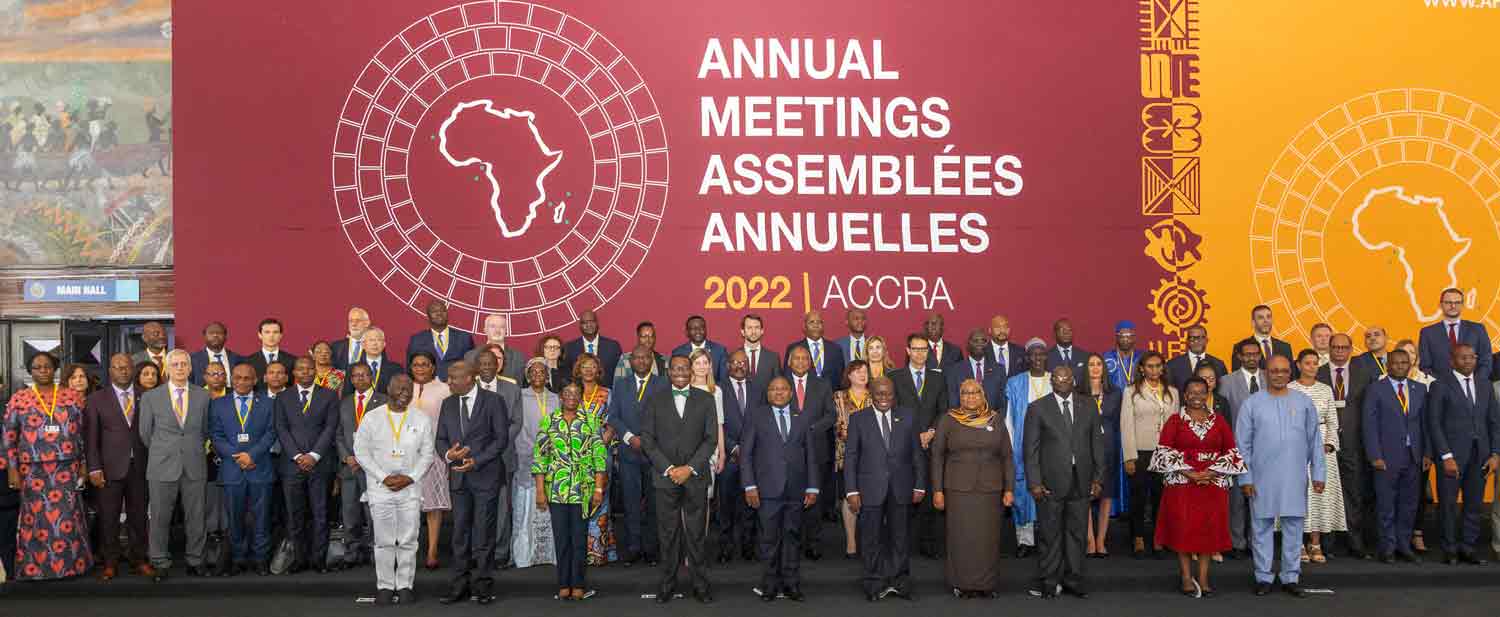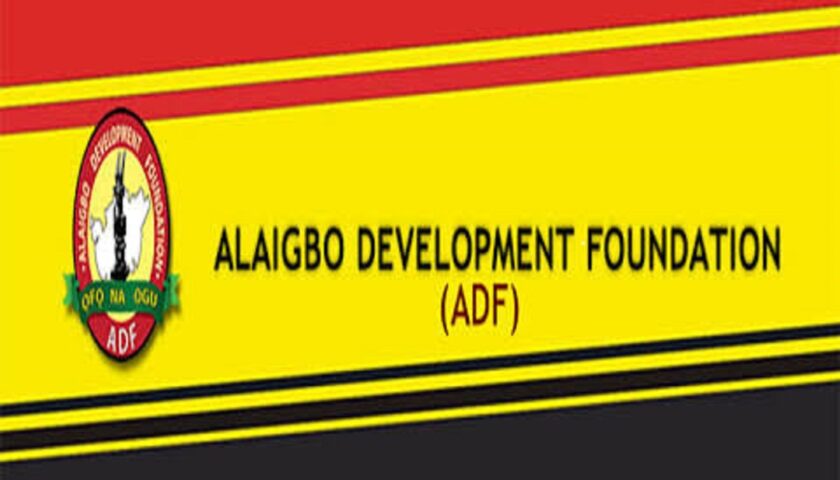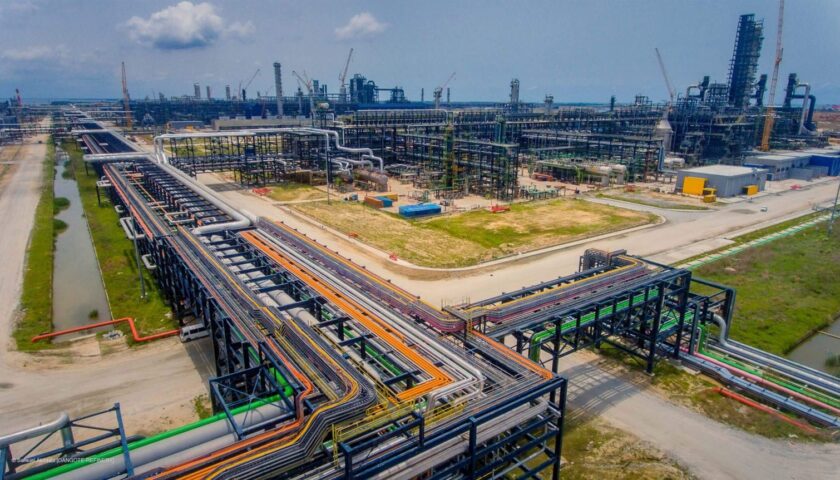President of AfDB, Dr. Akinwumi Adesina (standing middle in a green bow tie) in a group photograph with participants at the meeting
Heads of Africa’s leading regional and continental bodies as well as leading stakeholders have identified the need to reinforce regional integration and mobilization of resources to fast-track the continent’s development plan, also known as Agenda 2063.
The call was made by participants at the roundtable organised by the African Development Bank (AfDB) on the sidelines of its 2022 Annual Meetings in Accra, Ghana, which was attended by representatives of the African Union Commission, the African Continental Free Trade Area (AfCFTA), regional economic communities, Africa50, and other regional development banks.
The participants also observed that COVID-19 and rising fuel, food and fertilizer prices in the wake of the Russia-Ukraine war, have raised the stakes, and the urgency to speed up recovery for the continent.
President of AfDB, Dr. Akinwumi Adesina said as a result of the COVID-19 pandemic, Africa’s gross domestic product fell by 2.1 percent in 2020, the largest drop in two decades. He told the participants that Africa would need $484 billion to support recovery efforts, with an additional $7 billion to $15 billion annually to deal with climate change, adding that infrastructure which, according to him, would drive that growth, requires another $68 billion to $108 billion.
“We lost $165 billion and over 30 million jobs. Africa will not industrialize without a sustainable energy source. We have to move beyond trade…It’s manufacturing that brings wealth. Where are we going to find that money? The answer is quite simple: by collaboration and determination. We must pull together and push through”, he said.
Adesina also acknowledged that the role of the stakeholders and participants at the roundtable is pivotal. He commended the AfCFTA which became operational in January 2021, marking a major milestone in Africa’s regional integration agenda. The AfDB chief said the institution had broken ground in establishing the legal, regulatory, and institutional arrangements that will allow Africa to become a single, $3.4 trillion market. “We must make the most of the strengths of every institution around the table to succeed in our goals”, he added.
Notably, the AfCFTA which is currently the world’s largest trading market, has the potential to raise manufacturing output and lift millions out of poverty, making it an important facet of Africa’s economic future. Secretary General of AfCFTA, Wamkele Mene told the gathering that the ratification of the AfCFTA agreement is now effective in 43 countries, adding that the body has made progress in harmonizing rules of origin, with a single rule for over 5,000 products. “Another area of success is the achieving for the first time a single set of rules for resolving disputes – we are committed to resolving disputes amicably”, he further explained.
The challenge now, according to him, is to use trade instruments to ensure food security and to accelerate the removal of barriers to international trade. “We have to push through a very difficult phase”, he stressed.





